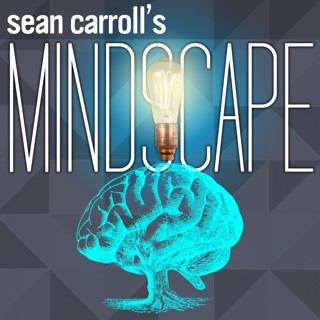
8 | Carl Zimmer on Heredity, DNA, and Editing Genes
Our understanding of heredity and genetics is improving at blinding speed. It was only in the year 2000 that scientists obtained the first rough map of the human genome: 3 billion base pairs of DNA with about 20,000 functional genes. Today, you can send a bit of your DNA to companies such as 23andMe and get a report on your personal genome (ancestry, health risks) for about $200. Technologies like CRISPR are allowing scientists to edit genes, not just map them. Science writer Carl Zimmer has been following these advances for years, and has recently written a comprehensive book about heredity: She Has Her Mother's Laugh: The Powers, Perversions, and Potential of Heredity. We talk about how our understanding of heredity has changed over the years, how there is much more to inheritance than simply listing all the information we pass down in our DNA, and what the future might hold in a world where genetic manipulation becomes widespread. [smart_track_player url="http://traffic.libsyn.com/seancarroll/carl-zimmer.mp3" social_gplus="false" social_linkedin="true" social_email="true" hashtag="mindscapepodcast" ] Carl Zimmer is a leading science writer whose work regularly appears in The New York Times, National Geographic, The Atlantic, and elsewhere. He is the author of thirteen books, including a university-level textbook on evolutionary biology. He has been awarded prizes and fellowships by the National Academy of Science, the American Association for the Advancement of Science, and the Guggenheim Foundation, among others. He teaches as an adjunct professor at Yale University. Home page Matter column in The New York Times Yale home page Wikipedia page Amazon author page Talk on Science, Journalism, and Democracy Twitter Download Episode See Privacy Policy at https://art19.com/privacy and California Privacy Notice at https://art19.com/privacy#do-not-sell-my-info.
6 Aug 20181h 31min

7 | Yascha Mounk on Threats to Liberal Democracy
Both words in the phrase "liberal democracy" carry meaning, and both concepts are under attack around the world. "Democracy" means that they people rule, while "liberal" (in this sense) means that the rights of individuals are protected, even if they're not part of the majority. Recent years have seen the rise of an authoritarian/populist political movement in many Western democracies, one that scapegoats minorities in the name of the true "will of the people." Yascha Mounk is someone who has been outspoken from the start about the dangers posed by this movement, and what those of us who support the ideals of liberal democracy can do about it. Among other things, we discuss how likely it is that liberal democracy could ultimately fail even in as stable a country as the United States. Yascha Mounk received his Ph.D. in Government from Harvard University. He is a Lecturer on Government at Harvard, a Senior Fellow in the Political Reform Program at New America, and Executive Director at the Tony Blair Institute for Global Change. His most recent book is The People vs. Democracy: Why Our Freedom Is in Danger and How to Save It. See Privacy Policy at https://art19.com/privacy and California Privacy Notice at https://art19.com/privacy#do-not-sell-my-info.
30 Juli 20181h 5min

6 | Liv Boeree on Poker, Aliens, and Thinking in Probabilities
Poker, like life, is a game of incomplete information. To do well in such a game, we have to think in terms of probabilities, unpredictable strategies, and Bayesian inference. These are ideas that play a central role in physics and rationality as well as in poker, which makes Liv Boeree such a great person to talk about them. Liv is a professional poker player who studied physics as a university student, and maintains an active interest in science generally and astrophysics in particular. We talk about poker, probability, the likelihood that aliens exist elsewhere in the universe, and how to be rational when it comes to charitable giving. [smart_track_player url="http://traffic.libsyn.com/seancarroll/liv-boeree.mp3" social_gplus="false" social_linkedin="true" social_email="true" hashtag="mindscapepodcast" ] Liv Boeree earned a First Class Honours degree in Physics from the University of Manchester, before becoming a professional poker player. She has won well over $3 million on the poker circuit, including taking First Place at the 2010 European Poker Tour Main Event in San Remo, Italy. She is the co-founder of the charity organization Raising for Effective Giving, which has raised millions of dollars (largely from fellow poker players) for good causes. Home page Wikipedia page TEDx talk on probabilities Vox article on the Fermi paradox Raising for Effective Giving Twitter Download Episode See Privacy Policy at https://art19.com/privacy and California Privacy Notice at https://art19.com/privacy#do-not-sell-my-info.
23 Juli 20181h 10min

5 | Geoffrey West on Networks, Scaling, and the Pace of Life
If you scale up an animal to twice its height, keeping everything else proportionate, its volume and weight become eight times as much. Such a scaling relation was used by J.B.S. Haldane in his famous essay, "On Being the Right Size," to help explain certain features of living organisms. But scaling relations go much deeper than that, and they are often much more subtle than the volume going as the cube of the length. Geoffrey West is a particle physicist turned complexity theorist, who studies how features from metabolism to lifespan change as we adjust the size of an organism -- or of other complex systems, from cities to computer networks. His insights have important implications for innovation, sustainability, and the best ways to organize life here on Earth. [smart_track_player url="http://traffic.libsyn.com/seancarroll/geoffrey-west.mp3" social_gplus="false" social_linkedin="true" social_email="true" hashtag="mindscapepodcast" ] Geoffrey West received his Ph.D. in physics from Stanford University. He is currently a Distinguished Professor at the Santa Fe Institute, where he served as President from 2005 to 2009. He has been listed as one of Time magazine's 100 most influential people in the world. He is the author of Scale: The Universal Laws of Growth, Innovation, Sustainability, and the Pace of Life in Organisms, Cities, Economies, and Companies. Home page Wikipedia page Amazon page TED talk on "The Surprising Math of Cities and Corporations" Google Scholar publications Download Episode See Privacy Policy at https://art19.com/privacy and California Privacy Notice at https://art19.com/privacy#do-not-sell-my-info.
16 Juli 20181h 23min

4 | Anthony Pinn on Humanism, Theology, and the Black Community
According to atheism, God does not exist. But religions have traditionally done much more than simply proclaim God's existence: they have provided communities, promoted the arts, handed down moral guidance, and so on. Can atheism, or perhaps humanism, replicate these roles? Anthony Pinn grew up as a devout Methodist, but became a humanist when he felt that religion wasn't really helping the communities that he cared about. Today he is a professor of religion who works to bring together atheism and the black community. We talk about humanism, identity politics, and the way forward. [smart_track_player url="http://traffic.libsyn.com/seancarroll/anthony-pinn.mp3" social_gplus="false" social_linkedin="true" social_email="true" hashtag="mindscapepodcast" ] Anthony Pinn received his Ph.D. in the Study of Religion from Harvard University, and is currently the Agnes Cullen Arnold Professor of Humanities and Professor of Religious Studies at Rice University, where he was the first African-American to hold an endowed chair at the university. He is the Founding Director of The Center for Engaged Research and Collaborative Learning at Rice University, and Director of Research,The Institute for Humanist Studies. Among his many books are Writing God's Obituary: How a Good Methodist Became a Better Atheist and When Colorblindness Isn't the Answer: Humanism and the Challenge of Race Home page Faculty page at Rice Wikipedia page Amazon.com page Online course at edX: Religion and Hip Hop Culture Talk on How a Good Methodist Became a Better Atheist Twitter Download Episode See Privacy Policy at https://art19.com/privacy and California Privacy Notice at https://art19.com/privacy#do-not-sell-my-info.
12 Juli 20181h

3 | Alice Dreger on Sexuality, Truth, and Justice
The human mind loves nothing more than to build mental boxes -- categories -- and put things into them, then refuse to accept it when something doesn't fit. Nowhere is this more clear than in the idea that there are men, and there are women, and that's it. Alice Dreger is an historian of science, specializing in intersexuality and the relationship between bodies and identities. She is also a successful activist, working to change the way that doctors deal with newborn children who are born intersex. We talk about human sexuality and a number of other hot-button topics, and ruminate on the challenges of being both an intellectual (devoted to truth) and an activist (seeking justice). [smart_track_player url="http://traffic.libsyn.com/seancarroll/alice-dreger.mp3" social_gplus="false" social_email="true" hashtag="mindscapepodcast" ] Alice Dreger received her Ph.D. in the History and Philosophy of Science from Indiana University. She has worked as a faculty member at Michigan State University and Northwestern University. She has been a Guggenheim Fellow, and was the Founding Board Chair of the Intersex Society of North America. She is the author of a number of books, including Galileo's Middle Finger: Heretics, Activists, and One Scholar's Search for Justice, and most recently The Talk: Helping Your Kids Navigate Sex in the Real World. Home page Wikipedia page Publications TED Talk: Is Anatomy Destiny? Twitter See Privacy Policy at https://art19.com/privacy and California Privacy Notice at https://art19.com/privacy#do-not-sell-my-info.
11 Juli 20181h 20min

2 | Carlo Rovelli on Quantum Mechanics, Spacetime, and Reality
Quantum mechanics and general relativity are the two great triumphs of twentieth-century theoretical physics. Unfortunately, they don't play well together -- despite years of effort, we currently lack a completely successful quantum theory of gravity, although there are some promising ideas out there. Carlo Rovelli is a pioneer of one of those ideas, loop quantum gravity, as well as the bestselling author of such books as Seven Brief Lessons on Physics and the recent The Order of Time. We talk about how to make progress on this knotty problem, including whether string theory will play a role (Carlo thinks not). [smart_track_player url="http://traffic.libsyn.com/seancarroll/rovelli.mp3" social_email="true" hashtag="mindscapepodcast" ] Carlo Rovelli is a professor of theoretical physics at the Centre de Physique Théorique de Luminy of Aix-Marseille University in France. In 1988, he and Abhay Ashtekar and Lee Smolin introduced the idea of loop quantum gravity. He is also the author of the "relational" interpretation of quantum mechanics. Home page Wikipedia page Google Scholar publications Amazon.com author page Talk on The Physics and Philosophy of Time Twitter Download Episode See Privacy Policy at https://art19.com/privacy and California Privacy Notice at https://art19.com/privacy#do-not-sell-my-info.
10 Juli 20181h 12min

1 | Carol Tavris on Mistakes, Justification, and Cognitive Dissonance
For the first full episode of Mindscape, it's an honor to welcome social psychologist Carol Tavris. Her book with co-author Eliot Aronson, Mistakes Were Made (But Not By Me), explores the effect that cognitive dissonance has on how we think. We talk about the fascinating process by which people justify the mistakes that they make, and how that leads to everything from false memories to political polarization. [smart_track_player url="http://traffic.libsyn.com/seancarroll/carol-tavris.mp3" social_email="true" hashtag="mindscapepodcast" ] Carol Tavris received her Ph.D. in social psychology from the University of Michigan. She is the author of numerous books, covering topics such as gender, biology, and emotion, and is a frequent contributor to a variety of newspapers and magazines. She is a Fellow of the American Psychological Association, the Association for Psychological Science and the Committee for Skeptical Inquiry. Carol Tavris on Wikipedia Social Psychology Network profile Amazon.com author page A lecture on "Dissent and Dissonance: The Science and Art of Argument." Download Episode See Privacy Policy at https://art19.com/privacy and California Privacy Notice at https://art19.com/privacy#do-not-sell-my-info.
4 Juli 20181h 11min





















